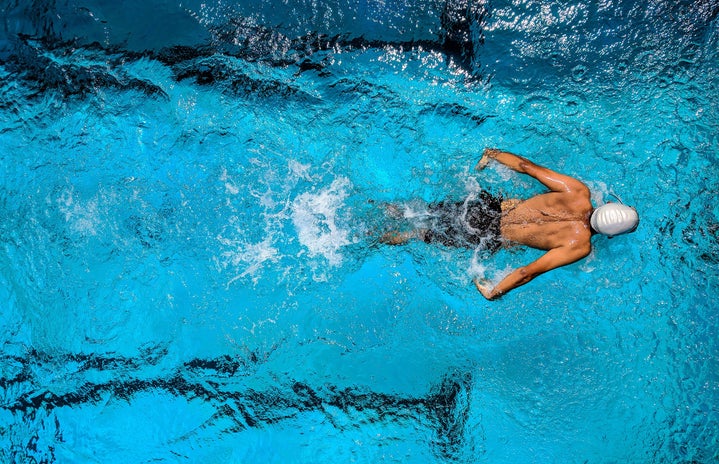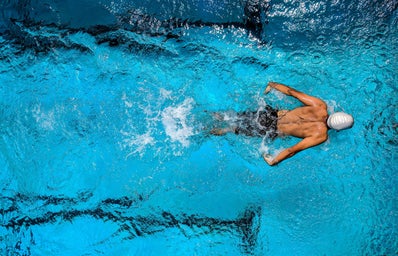Lia Thomas became the first known transgender athlete to win a NCAA Division 1 championship in any sport at the 2022 NCAA Division I women’s swimming and diving championships in Atlanta, Georgia. However, rather than celebrating this moment, Thomas has been receiving hateful comments online by people who, quite frankly, have no understanding of or interest in NCAA swimming and diving—or women’s sports in general. As a female D1 athlete at Saint Louis University, I find this slander heartbreaking. Excluding Thomas from competing does nothing to uplift or “protect” women’s sports. Singling out Thomas diminishes the work she’s put in to perfecting her craft as a NCAA Division 1 athlete—something that is damn hard at times —and takes away the well-earned spotlight from the other female athletes who won events and titles at the same meet.
I understand that there’s still plenty of research to be done with regards to transgender individuals and women’s sports in general, and I do not claim to be an expert on this topic; I can only speak from my own understanding as a cisgender, female athlete. Many of my teammates are heartbroken and furious about the backlash that Lea has been receiving, especially from uninformed individuals whose main priority is to slander a transwoman, not advocate for women’s sports. A lot of people might be confused in this area, but I assure you that opposing Thomas’s participation is the wrong side of history to be on. Currently, conservative legislators are working around the clock to pass legislation that bans transgender kids from participating in sports, inciting an unwarranted fear of transgender people. Many trans athletes exist, yet the public conveniently only hears about the ones who win awards and competitions.
One of the arguments against Thomas’s participation in women’s swimming is that she went from “462nd as a male to 1st as a female.” This argument states that her motivation for transitioning was to have an edge in excelling in female competition and “steal” titles from the female athletes. First off, the claim that Thomas was ranked 426nd as a male is completely unsourced and cannot be proved. Secondly, Thomas won first place in one event (500 yard freestyle) by barely seconds, and lost in her other two events in a meet with 21 events—hardly dominating women’s swimming.
Here are other stats argue against Thomas’ “domination” of women’s swimming:
- Lia Thomas finished 1st place in the 500 Yard Freestyle. She beat the second-place finisher by 1.75 seconds. She beat the last-place finisher by 6.84 seconds. She fell short of record time by 9.18 seconds.
- Lia Thomas tied for 5th place in the 200 Yard Freestyle. She lost the race by 2.28 seconds and fell short of record time by 4.3 seconds.
- Lia Thomas finished 8th (last place) in the 100 Yard Freestyle. She lost the race by 2.13 seconds and fell short of record time by 2.62 seconds.
- Lia Thomas only competed in these 3 events, out of 21 total at the meet.
It’s so easy to have a reactionary and uninformed take on issues like this, but I implore everyone to do their due diligence and research the NCAA and International Olympic Committee’s (IOC) rules and regulations on transgender athlete’s participation in athletic competition. Currently, the NCAA tests testosterone levels before they let trans women compete, and if Thomas had any hormonal advantages over her competitors, she wouldn’t have been allowed to compete.
Thomas is competing against other women because she is a woman.
If anyone thinks it’s easy to swap genders, compete as said gender, and break records, then go do it. Transition to and compete against a gender that is historically underfunded and under celebrated in athletics. Instead of focusing energy on tearing down one athlete, we should channel it into uplifting women’s athletics as a whole. There are issues in the NCAA greater than one athlete that need to be addressed. Today, women make up 44% of all NCAA student athletes, yet the NCAA spends $2,229 more per student athlete for the men’s championships than for the women’s. This is what we should be fighting to fix, not the exclusion of transgender atheltes who just want to share in the love of their sport. Last year, the women’s March Madness basketball tournament exposed the vast inequality in resources available to male and female athletes. The inequalities ranged from the food available to athletes, quality and amount of weight room equipment, “swag bags” athletes received, and even the quality of COVID tests available – the men got PCRs daily, while the women got antigen tests – resulting in multiple false positives inside the women’s bubble. This is only one example of how female athletics are significantly undervalued.
Lia Thomas is not the problem, the system is the problem. Before any accusation of unfairness can be made in the case of Thomas, we must confront the broader case of gender disparity in athletics. Until then, I will stand with Thomas as a fellow female athlete and work to create a more equal, inclusive environment for LGBTQ+ athletes—and I hope you will too.


